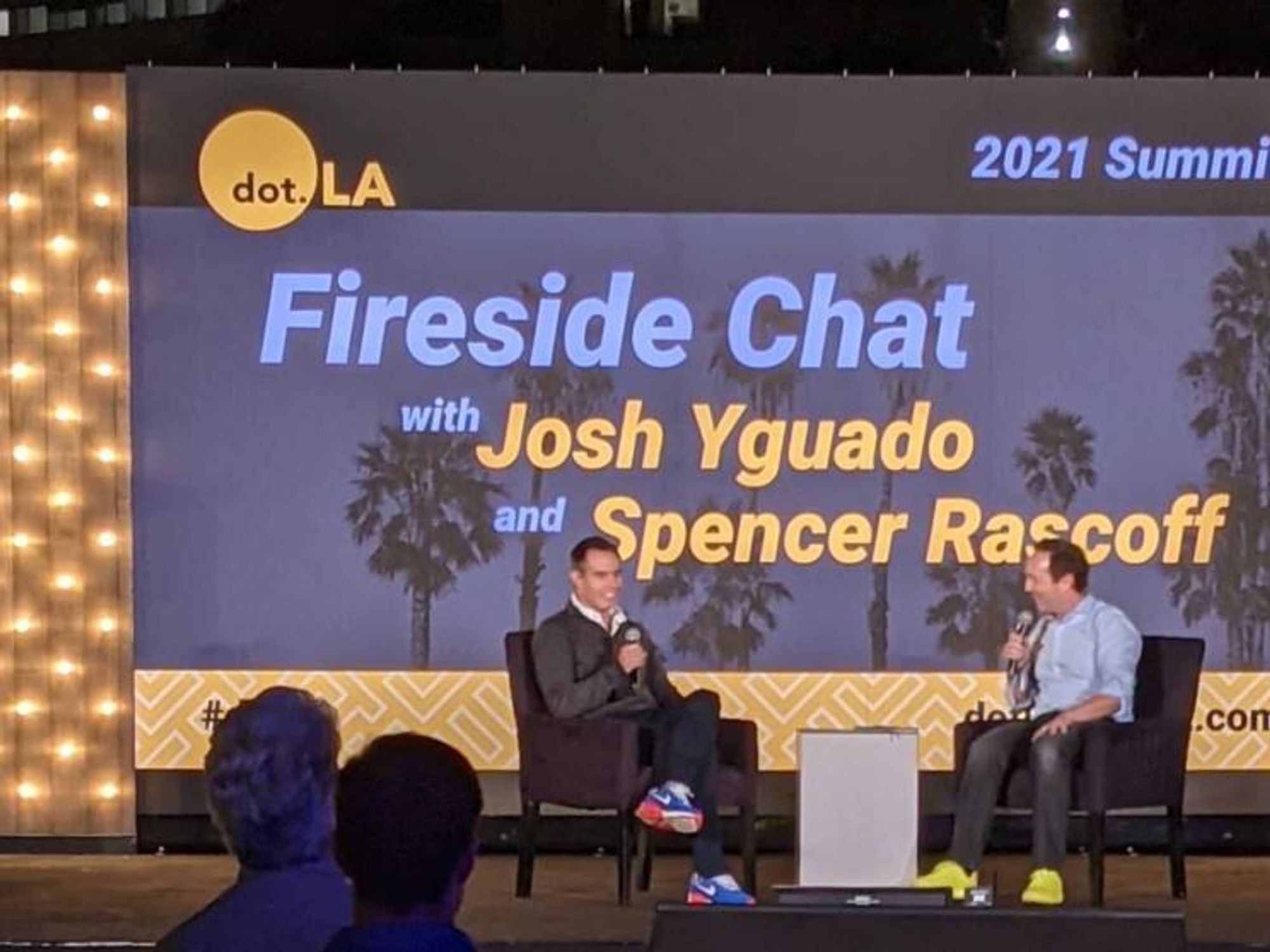Jam City's Josh Yguado Looks to a Time When Gamers Own a Stake in their Favorite Titles
Samson Amore is a reporter for dot.LA. He holds a degree in journalism from Emerson College. Send tips or pitches to samsonamore@dot.la and find him on Twitter @Samsonamore.

At dot.LA's second annual summit, mobile game publisher Jam City's Chief Operating Officer Josh Yguado said he believes the next generation of mobile gaming will enable users to own parts of their favorite games on the blockchain.
"More than anything we're investing in where gaming is going, so we're making huge investments right now in augmented reality and cryptocurrency," Yguado said during the summit's fireside chat Thursday evening. "We've talked about the metaverse a bit today, but we're really thinking about where gaming is going to be two to three years from now."
Culver City-based Jam City was launched in 2011 and has since made a name for itself adapting popular television and movies into games. Its standout titles include "Harry Potter: Hogwarts Mystery," "Jurassic World Alive" and "Cookie Jam." Jam City and Josh Yguado are both investors in dot.LA.
Speaking with dot.LA co-founder and Spencer Rascoff, Yguado said that after more than a decade running Jam City, the mobile gaming giant is looking beyond its roots as a company that develops its own games to one that's focused on acquiring existing game studios and bringing more indie developers under its wing. The one-on-one interview was part of a slate of evening events kicking off the second dot.LA Summit, and was recorded for Rascoff's "Office Hours" podcast.
This September, Jam City paid $165 million to buy out Montreal-based Ludia, which was previously owned by Fremantle Media and developed the "Jurassic World Alive" game. At the same time, Jam City raised a $350 million equity and debt round led by South Korean game publisher Netmarble Games, the company's largest funding round ever. Jam City has raised roughly $625 million since its launch, according to Pitchbook.
Yguado said that Jam City has generated $3 billion in lifetime revenue, driven mainly by in-app purchases since its games are free. He also noted Jam City's games have been installed roughly 1.3 billion times. The next step, he said, is allowing that loyal player base to actually own and trade parts of games as NFTs, or non-fungible tokens, that have the potential to increase in value over time like a physical collectible.
"We think the future is going to be a lot of IP [intellectual property], and some advertising [revenue], but also people actually buying and owning assets. I think that's the next phase of where we're headed," Yguado said. "Now we're entering this next phase, I really believe we're going to have a kind of transition now going toward real ownership in gaming."
Yguado added, "players up till now have been enjoying a world, but it's like playing on a stage, they're not actually investing in creating something that they can share with others."
Yguado told Rascoff that Jam City's research shows that its players spend more time per day engaging with its games than they watch film and TV. But Yguado said the connection to recognizable film or television franchises helps reel in new players. Half of the Jam City games portfolio is original IP, and the other half is based on existing well-known franchises, such as Fox's "Family Guy" or Disney's "Frozen."
"Honestly, we love both [original and acquired IP], what we care most about is the gaming experience," Yguado said. "Whether we're creating the world and the characters or we're licensing them… I'd say we're agnostic in terms of what makes these companies want to work with us."
Note: Jam City is a sponsor of the dot.LA Summit.
- Jam City Will Go Public Via a SPAC - dot.LA ›
- Jam City Buys Game Maker Ludia for $165 Million - dot.LA ›
- dot.LA's Tech and Startup Summit Kicks Off In Santa Monica - dot.LA ›
- Office Hours: Jam City’s Josh Yguado and the Future of Gaming and the Blockchain - dot.LA ›
- Metaverse Comes to Santa Monica With FlickPlay - dot.LA ›
- Here Are The Top Venture Capitalists In 2023 - dot.LA ›
Samson Amore is a reporter for dot.LA. He holds a degree in journalism from Emerson College. Send tips or pitches to samsonamore@dot.la and find him on Twitter @Samsonamore.



 Image Source: Skyryse
Image Source: Skyryse
 Image Source: Northwood Space
Image Source: Northwood Space